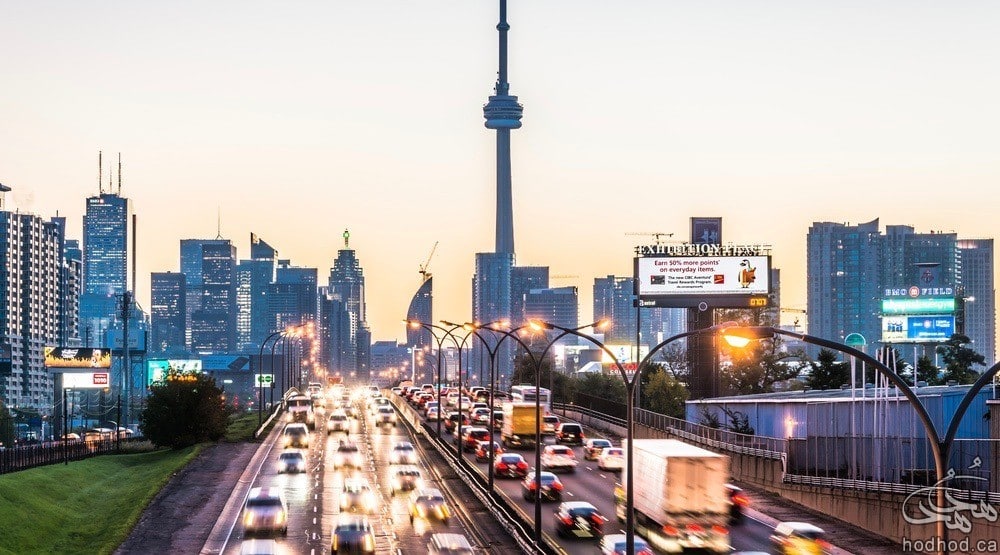In a new report commissioned by the Canadian Automobile Association (CAA) entitled, Grinding to a Halt: Canada’s Worst Highways, the automotive association breaks down the worst traffic bottlenecks in Canada.
The first report of its kind to be conducted in Canada, the results shed light on the time, money, and environmental impact these hours of traffic have on Canadians and our country.
Data was collected and analyzed from Vancouver, Calgary, Edmonton, Regina, Winnipeg, Toronto (including the Hamilton and Oshawa CMAs), Ottawa, Montreal, Quebec City and Halifax.
A bottleneck is defined, quite simply, as “severe traffic chokepoints where demand far exceeds available highway capacity.” And, in fact, a similar US study commissioned by the United States Federal Highway Administration (FHWA) found that bottlenecks made up 40% of the road delay share in the US, compared with 25% for traffic incidents, making it the number one reason for delays on the road.
A few things from the report worth noting when considering the ranking:
- Although the ranking of the Vancouver bottlenecks are not as severe as they are in Toronto and Montreal, the actual vehicle speeds that drivers experience into and out of downtown Vancouver are in fact as bad as or worse than they are in those two cities.
- The Travel Time Indices (TTI) is the travel rate during a specified period of time relative to the travel rate in free-flow conditions. For example, if it takes 45 minutes to travel between points A and B during the morning peak and it takes 30 minutes to travel between the same points during free-flow conditions, the TTI is 45 / 30 = 1.50.
- Compared with US bottlenecks, Toronto’s 401 bottleneck ranks among the top ten (Canada and US combined), while Montreal’s top bottleneck ranks among the top 20.
- Toronto’s 401 bottleneck costs commuters over 3 million hours annually.
- The study examined traffic flows and speeds on approximately 3,000 kilometres of highways across Canada, but the total length of the top 20 bottlenecks found is only 65 kilometres long.
- The study was conducted over all four seasons in February, May, August and November of 2015, resulting in the examination of 15,000 urban segments and almost 180 million speed observations.
- Altogether, the delay costs from the top 20 traffic bottlenecks in Canada is close to $300 million per year.
- Toronto has 10 of the top 20 traffic bottle necks, Montreal has five, and Vancouver has four.
The 20 worst traffic bottlenecks in Canada
- Toronto, Highway 401 between Highway 427 and Yonge Street
- Toronto, Don Valley Parkway/Highway 404 between Don Mills Road and Finch Avenue
- Montreal, Highway 40 between Boulevard Pie-IX and Highway 520
- Toronto, Gardiner Expressway between South Kingsway and Bay Street
- Montreal, Highway 15 between Highway 40 and Chemin de la Cote-Saint-Luc
- Toronto, Highway 401 between Bayview Avenue and Don Mills Road
- Toronto, Highway 409 between Highway 401 and Kipling Avenue
- Montreal, Highway 25 between Avenue Souligny and Rue Beaubien
- Vancouver, Granville Street at SW Marine Drive
- Vancouver, W Georgia Street between Seymour Street and W Pender Street
- Toronto, Highway 401 between Don Valley Parkway and Victoria Park Avenue
- Toronto, Black Creek Drive between Weston Road and Trethewey Drive
- Toronto, Highway 401 between Mavis Road and McLaughlin Road
- Montreal, Highway 40 between Highway 520 and Boulevard Cavendish
- Vancouver, Granville Street between W Broadway Street and W 16th Avenue
- Montreal, Highway 20 near 1re Avenue
- Quebec City, Highway 73 between Chemin des Quatre Bourgeois and exit to Avenue Dalquier
- Toronto, Highway 401 interchange at Highway 427
- Toronto, Highway 400 at Highway 401
- Vancouver, George Massey Tunnel on Highway 99
Source:
http://dailyhive.com/toronto/caa-worst-traffic-bottlenecks-in-canada-2017

